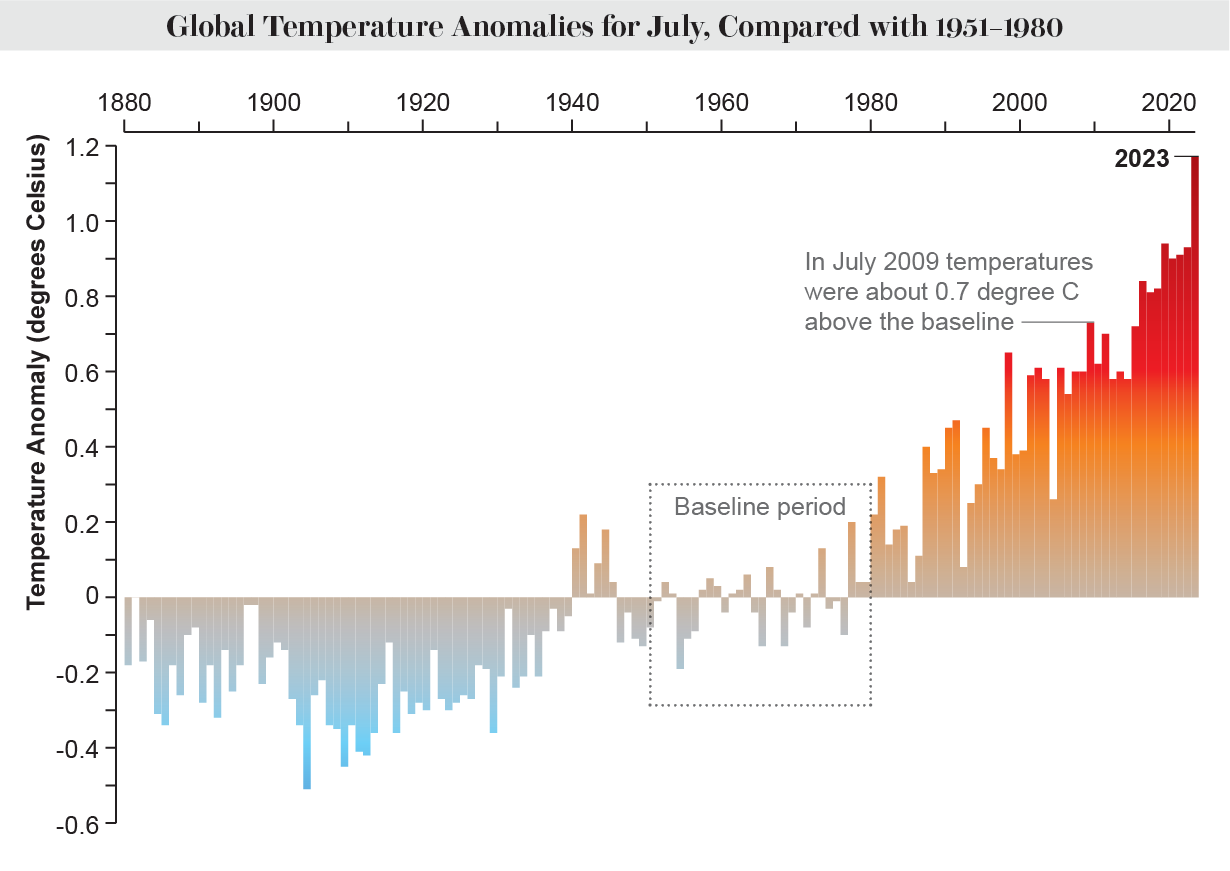Preliminary analyses show that this July is virtually certain to be the hottest month on record for the planet by a wide margin, largely because of global warming
Thank you for reading this post, don't forget to subscribe!

Because July is climatologically the hottest month of the year for the Earth as a whole, that makes July 2023 the hottest month since records have been kept and likely the hottest in 120,000 years, based on evidence of past temperatures found in ancient sediments and layers of ice, as well as on other paleoclimate records.
This July has seen record-breaking heat waves in several spots around the world, notably in the U.S. Southwest, Mexico, and China and around the Mediterranean. The records are primarily linked to overall rising global temperatures from the excess heat trapped in the atmosphere by humans burning fossil fuels. An analysis published on Monday by the World Weather Attribution group found that the heat waves in North America and Europe were “virtually impossible” without climate change. It also found that the heat wave in China was 50 times more likely to occur in our current warmer world. All three heat waves were hotter than they would have been without the boost from global warming.
El Niño, which developed in May, also boosts global temperatures—and this climate pattern’s combination with climate change makes it highly likely that more months this year will set records, according to Karsten Haustein, a Leipzig University climate scientist who conducted that institution’s analysis. The year as a whole will certainly rank among the hottest on record. Through June, it was the third warmest year to date (behind 2016, which featured a monster El Niño, and 2020), according to the National Oceanic and Atmospheric Administration.
A release from Leipzig University and another from the WMO and C3S both noted that July was about 1.5 degrees C (2.2 degrees F) above preindustrial levels, the warming limit countries have agreed to strive for under the Paris climate accord. That does not mean the world has passed that point permanently—overall the planet has warmed by about 1.2 degrees C (2.2 degrees F) since preindustrial times—but it is well on its way to doing so without immediate and significant reductions in greenhouse gas emissions.
“The extreme weather which has affected many millions of people in July is unfortunately the harsh reality of climate change and a foretaste of the future,” said the WMO’s secretary-general Petteri Taalas in the WMO-C3S press release. “The need to reduce greenhouse gas emissions is more urgent than ever before. Climate action is not a luxury but a must.”
ABOUT THE AUTHOR(S)

Andrea Thompson, an associate editor at Scientific American, covers sustainability. Follow Andrea Thompson on Twitter Credit: Nick Higgins

